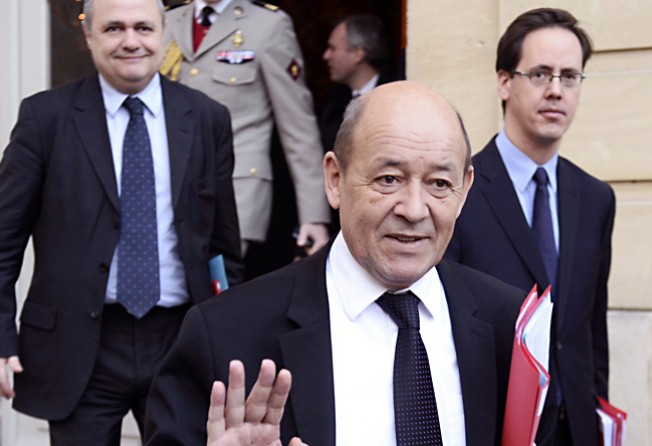French officials get sweeping new powers to spy on internet users
Legislation quietly passes to allow cyber-eavesdropping by a wide range of government entities, without the need for any prior authorisation

French intelligence and government officials are to get powers to spy on internet users in real time and without authorisation.
The legislation, which was passed on Wednesday almost unnoticed, will enable a wide range of public officials including regular and paramilitary police, intelligence and anti-terrorist agencies as well as several government ministries to monitor computer, tablet and smartphone use directly.
The spying clause, part of a military programming law, comes just weeks after France, which considers individual privacy a pillar of human rights, expressed outrage at revelations that the US National Security Agency (NSA) had been intercepting phone calls in France. The president, Francois Hollande, expressed his "extreme reprobation".
Article 13 of the law will allow not just the security forces but intelligence services from the defence, interior, economy and budget ministries to see "electronic and digital communications" to discover who is connected to whom, what they are communicating and where they are.
Despite concerns over the infringement of personal liberties, and the possibility of abuse of the blanket justification for snooping for the "prevention of crime", the military programming law cleared its final hurdle on Wednesday after the Senate, the upper house of parliament, approved it by 164 votes to 146. The bill was earlier approved in the lower house by a similar majority.
An amendment rejecting article 13, tabled by senators from the Ecology party, was thrown out.
Government officials said the measure was necessary to combat terrorism, organised crime and economic or scientific espionage, and to protect national security. The defence minister, Jean-Yves Le Drian, insisted "public liberties will be covered" in the law.
Previously, demands for phone taps or data intercepts had to be authorised by a judge of the National Commission for the Control of Security Intercepts.
The government said the spying would be overseen by an "independent authority and by parliament", but technology firms belonging to the Association of Internet Services Communities (@SIC), including Google, Microsoft, Facebook, Skype and AOL, have criticised the scale of the proposed snooping.
In a statement @SIC expressed concern that the law was an opening up of previously controlled "exceptional" security measures used to fight terrorism and crime, and allowed officials to tap into data under the blanket "prevention of crime" clause in the bill.
It said even now there was no "clear picture" of how surveillance of internet users was being conducted in France nor on the number of demands for surveillance made each year.
"When civil society and many others are alarmed at the daily revelations over this question [of internet surveillance] it is inconceivable that the French government should launch itself into this wild race to extend what were exceptional measures and offer numerous officials real-time access to internet users' data," it said.
Loic Riviere, secretary general of the French Association of Software and Internet Solutions Editors, which represents 350 French software and internet companies, said: "We understand the need to fight the explosion of cybercriminality and we are certainly not against those trying to ensure national security, but this [law] is not legally clear and is worrying."